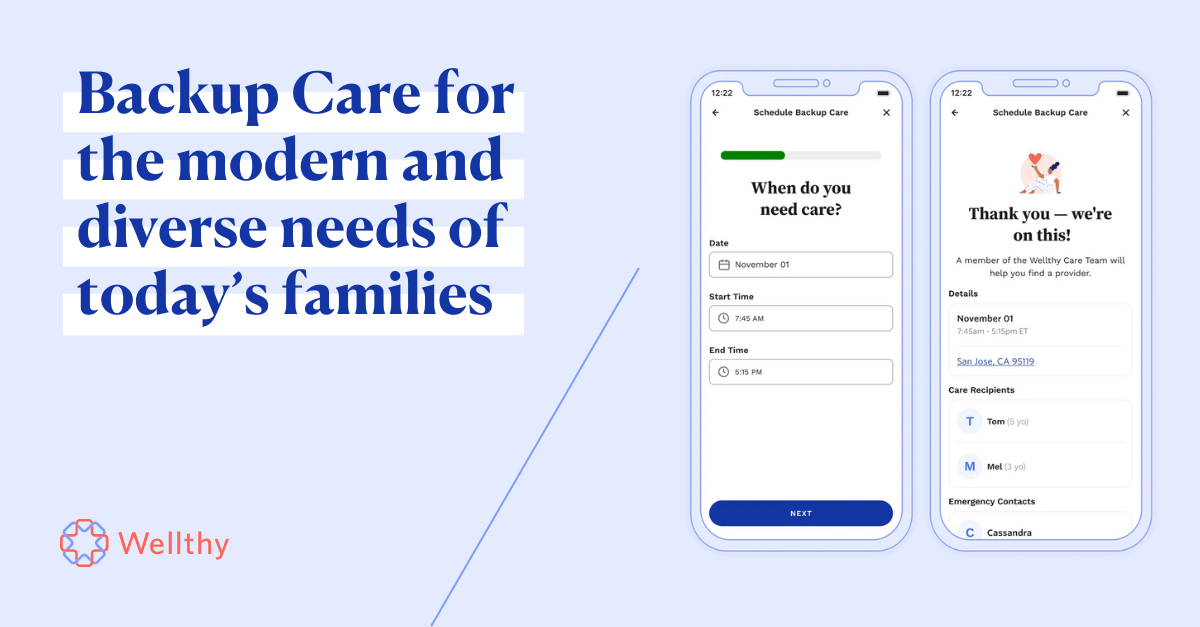Author and advocate Susanne White is a champion for self-care – her lived experience providing care for both of her parents as they navigated extensive care needs profoundly changed her life. She’s now sharing the lessons she learned from that experience as both the founder of the website Caregiver Warrior, and also as the author of the new book Self-Care for Caregivers: A Practical Guide to Caring for You While You Care for Your Loved One.
With May marking Mental Health Awareness Month, Susanne will be speaking to Wellthy members on the emotional challenges that family caregivers face, the impact caring has on mental health, and steps that can be taken to prioritize self-care and build resilience throughout the caregiving journey.
We sat down with Susanne for a brief Q&A that touches on how caregivers can stay in tune with their mental health amidst sometimes overwhelming care responsibilities.
So many family caregivers start their caregiving journey in sprint or crisis-mode, and often find themselves running 24-7 to keep up. What advice do you have for those who find themselves in family caregiving roles for the first time?
Caregivers are hard wired to be caregivers. We’re there right away and that’s extraordinary and amazing. However, it’s dangerous – because we try to do everything immediately, perfectly, and alone. I want caregivers to be really cognizant of the fact that we want to fix things immediately and perfectly, and then the toll starts when we realize we can’t. We burn out. We beat ourselves up.
So my biggest piece of advice: as best you can, practice self-awareness.
I had to look in the mirror and work at being self-aware. Through self-awareness, I could find some forgiveness and self-love – all of which you have to have for self-care. Caregivers put our lives on hold, and the priority becomes someone else’s well being. I know that’s our main duty, but we cannot forget about ourselves. You can’t help someone in an airplane if you don’t put the mask on first, right? So how can you help someone if we can’t breathe?
It seems like everyone has some kind of story connected to caregiving – and yet despite its universality, it still feels like a topic few want to talk about or feel comfortable talking about. Can you speak to the importance of vulnerability for caregivers?
We think we are bad caregivers if we ask for help. Caregivers have the hardest time asking for help. I’m here to scream “Caregivers, ask for help!” It doesn’t mean you’re failing if you ask for support. Caregiving takes a village. You cannot do it alone – no one can do it alone. We’re built for community, and it takes a village. And with caregiving it takes two villages. You have to ask for help, you have to get rid of the feeling that you’re a bad caregiver or failing if you can’t do it alone.
On a recent podcast you shared a story about seeing your parents napping together during intense caregiving days, and having such a transformational moment of seeing them so peaceful and warm and calm, and wanting to savor that moment. It’s such a powerful anecdote, and I wonder what advice you have for caregivers to be present with their loved ones and recognize deeply special moments when they happen?
It’s extremely difficult – it’s really hard to not constantly feel guilty about the past or worried about the future as a caregiver.
We need to try as often as we can – maybe even use sticky notes to remind us – to ‘stay in our now’. It’s hard, but the more we work at it, the better we get. It doesn’t happen overnight and sometimes it never happens, but you’ve got to try and touch base with yourself as a caregiver. It’s almost like taking your emotional temperature while taking the temperature of your loved ones.
I believe when we do this, it’s easier to make an attempt to breathe and see what’s going on right now. In doing that, that's where gratitude can slip in, or you can look and remember that the end game is we’re walking our loved ones home. This isn’t permanent. This is temporary. Stop for a moment and go “Wow, I’ll never get this moment with my dad again.”
I had to really focus on that and continue to remind myself, but it’s so amazing when you do it. You can’t do it every day, or sometimes at all. But if we just try to remember that this is a very delicate time in our lives and it is temporary and we just have to be grateful for certain moments, you can get to a point of cherishing this time with your loved ones perhaps down the road.
May is Mental Health Awareness Month, so it’s such a topical time of year to talk about caregiver mental health and self-care. Can you share a few of your favorite well-being practices that caregivers can incorporate into their daily routines?
You have to give yourself permission to feel all the feelings. There’s no quick fix to the intense emotions you have as a caregiver. All my life when I had bad feelings, I would fight it. But you can’t do that forever. Surrender and self-acceptance … it’s okay to be angry, resentful, frightened. Those are normal feelings in life and normal in caregiving.
Caregivers need a toolbox, and self-forgiveness, self-acceptance, and self-love are really important. Meditation, cookies at 3pm, Tai-Chi, staying in the bathroom and locking the door for 17 minutes – all of these things can be part of a toolbox to help get through hard moments, days, weeks, months. And then if it’s talking to a priest, rabbi, faith leader – whatever it is, doing for ourselves and understanding we are allowed and have permission to make things and do things that make us feel good. Don’t put your lives, hobbies, and dreams on hold. We’re allowed to live our lives. And my parents wanted me to do stuff for myself. My survival mechanism eventually told me: I need to find time for myself. If I don’t want to be resentful, I have to get rid of the expectations that I have to do things alone as a caregiver, all at once, and perfectly.
Whatever a caregiver needs to find for themselves – a treat, a practice, etc., they have to make sure it’s at their disposal and they take advantage of it.
You have a recent book, Self-Care for Caregivers: A Practical Guide to Caring for You While You Care for Your Loved One. What led you on the journey to not only write this book, but focus it so intentionally on self-care?
When I started my journey there wasn’t a lot of information out there for caregivers or advocates, so I basically started journaling. Writing has always been a part of my life – I used to be a singer/songwriter – and journaling has always been something that’s helped me find some relief.
For me journaling helped me find five minutes of quiet. And the more I journaled the more I thought “Oh wow, this is kind of cool.” I started to document mistakes I made, and strategies I came up with to help provide care for my parents. And I started to think that what I was writing and what I was going through could teach people – and that someone, somewhere might relate to it. Information is power to me, and with not a lot of resources out there to discuss the intense feelings I had or the state of my own mental health as a caregiver, I thought my writing could perhaps one day be helpful – even if just helpful to me!
My website Caregiver Warrior came about because I feel like all caregivers are warriors. We fight every day to keep our loved ones safe and sound, and our battles are medications, health care systems, ERs, and more. So my journaling turned into blogging: writing about what worked for me as a caregiver, what I was going through, and of course stories of my mom and dad. My aim was to be as authentic as possible, and I knew that no one could argue with me if I knew they were my stories.
As I grew and was blogging, Simon & Schuster came to me because of my Instagram. They asked if I would do a book, and I was thrilled. I feel like this particular book is a tool, because often caregivers don’t have time to read. So you can turn through 140 thoughts of mine about how to take care of yourselves, and find places in the book where you can have a good cry, or find some thoughts to relate to.
You can learn more about Susanne’s work and follow here on social media at the links below. You can also order your copy of Self-Care for Caregivers: A Practical Guide to Caring for You While You Care for Your Loved One at this link.
Website: www.caregiverwarrior.com
Instagram, Facebook, Pinterest: @caregiverwarrior
LinkedIn: https://www.linkedin.com/in/susannewhite
Twitter: @caregivewarrior







